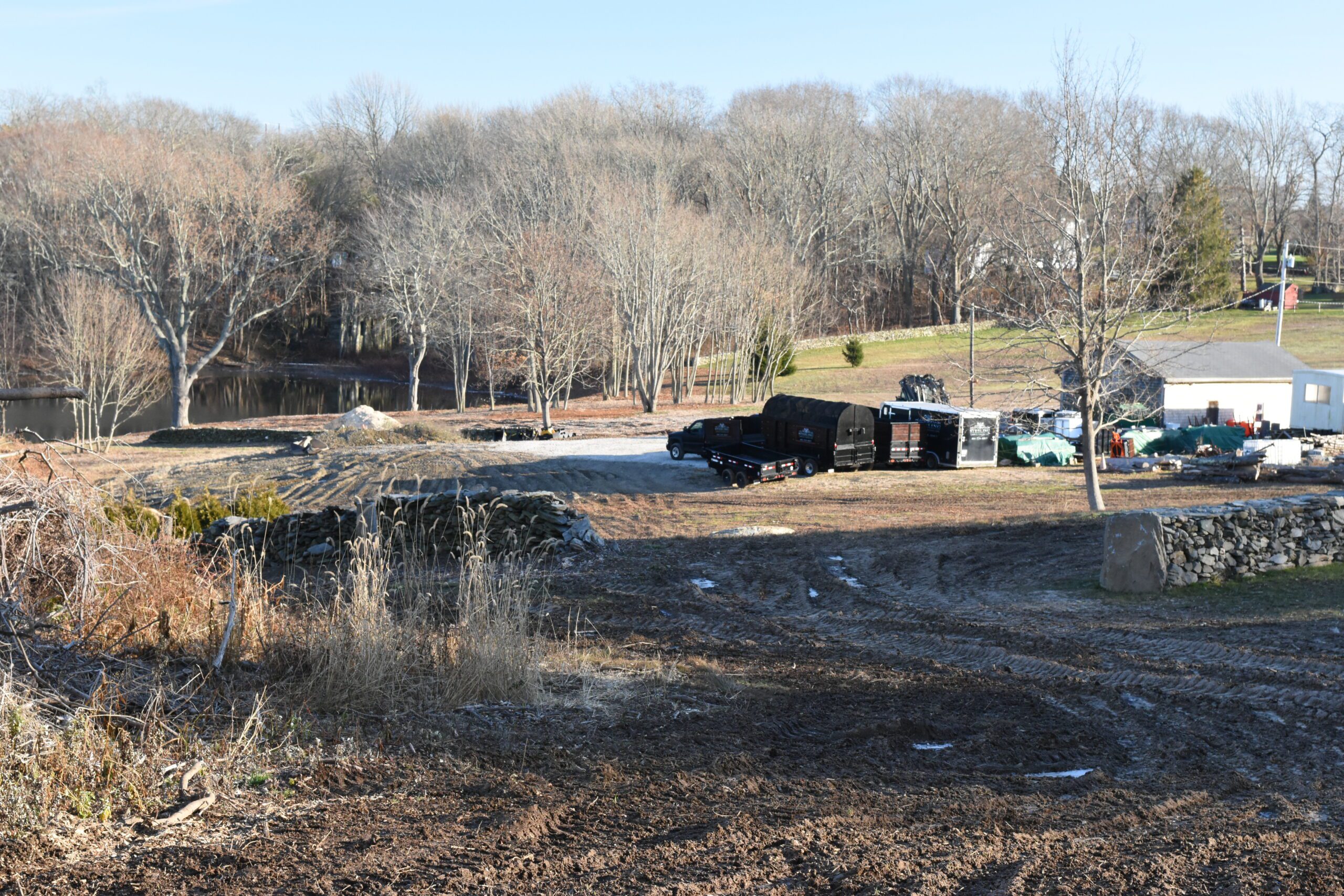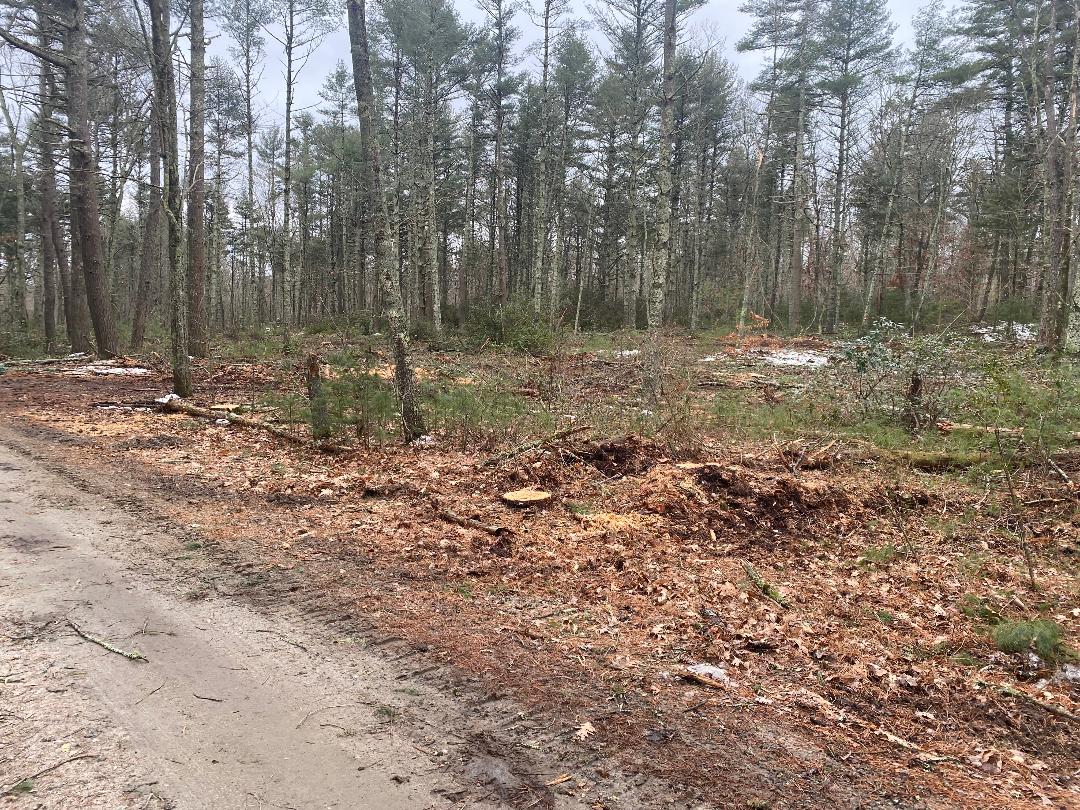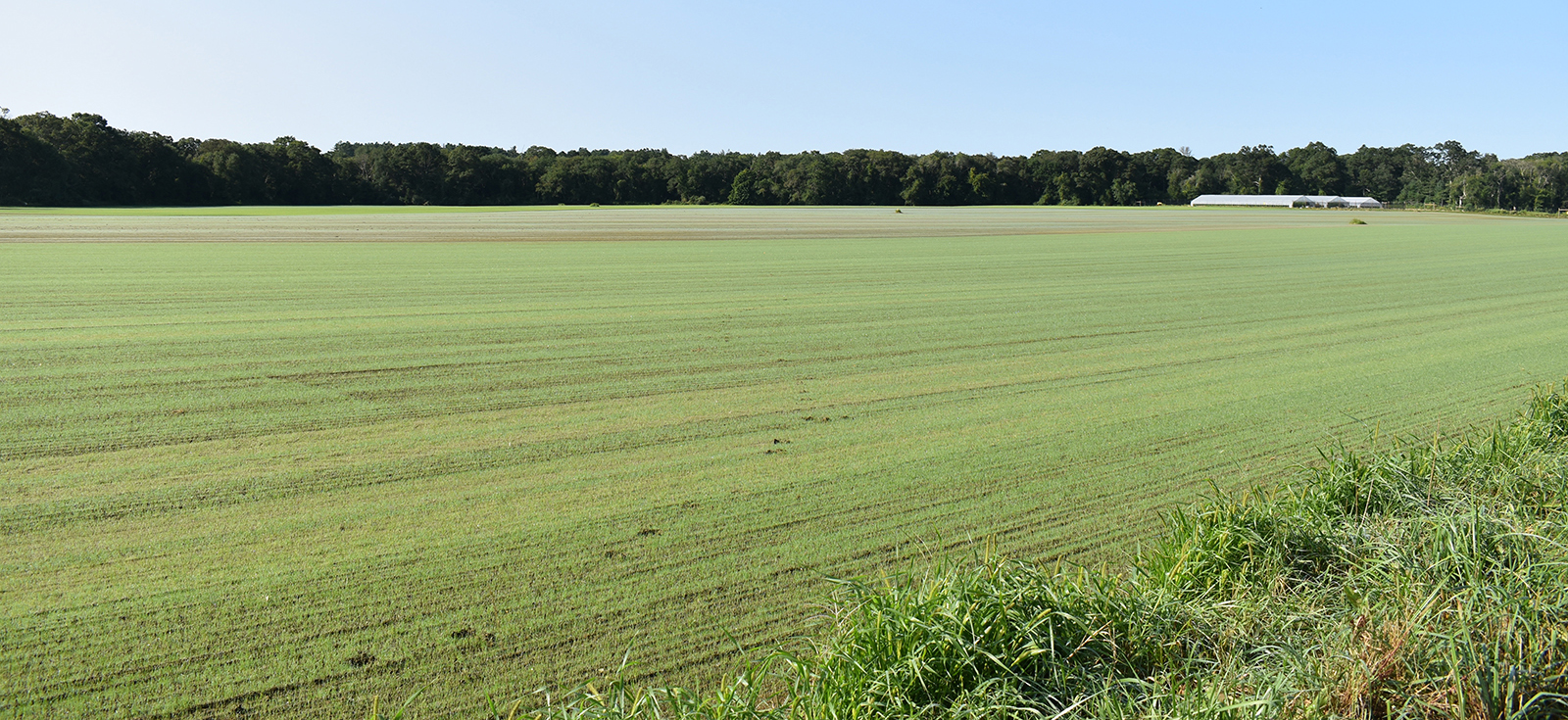DEM Gives Governor’s Chief of Staff Go-Ahead to Develop Wetlands in Flood-Prone Cumberland Neighborhood
July 26, 2021
CUMBERLAND, R.I. — State environmental officials have given a green light to a planning proposal by the governor’s chief of staff to develop a small piece of suburban property located on freshwater wetlands.
The Rhode Island Department of Environmental Management (DEM) approved the development at 45 Canning St. that was proposed by Tony Silva, chief of staff to Gov. Dan McKee, in a decision issued in early June.
Wedged between two homes and mowed lawns on the quiet street, the slice of property is overgrown with trees covering the view of the wetland surface beneath.
When Cumberland officials were first made aware that the project was being considered by DEM, the town’s planning director, Jonathan Stevens, wrote in a Nov. 22, 2019 letter to the state agency that the applicant proposes a wetland disturbance of at least 5,196 square feet, or 93 percent of the entire 5,600-square-foot lot.
“The proposed ratio of disturbance to lot size is extremely excessive and unreasonable,” Stevens wrote.
The planning director also noted the chronic flooding problems that plague this section of Canning Street. “Displacing this wetland with additional impervious surfaces stands to adversely affect downstream residential properties,” he wrote.
At the end of his letter, Stevens requested that DEM deny the application, “as granting approval will not be in the best public interest.”
In another letter to DEM five months later, Stevens noted none of the amendments to the revised application justifies the town changing its objection to the project. “The application still proposes to disturb an astonishing 93% of existing wetlands on the lot,” he wrote.
“The proposed drainage swale channel in conjunction with the pipe replacement only benefits the owner of the lot in question, whose water-saturated lot would be drained and made potentially buildable,” Stevens wrote in the April 17 letter. “The additional stormwater conveyance efficiency would have a negligible beneficial effect on the stormwater ponding and potential flooding at this Canning Street location, and an inordinately adverse impact on the adjacent lot receiving the stormwater flows at higher rate.”
The Valley Breeze, which first reported the story, reported that Gail Mastrati, DEM assistant to the director, said the agency approved a revised wetland application for the property June 3. The agency’s decision noted the plan’s updated stormwater design would not increase flooding or put neighbors at risk of additional flooding.
Mastrati said DEM found wildlife would not be “significantly harmed despite some filling of the wetland in question” and that, despite comments from neighbors and town officials, a public hearing was not required because potential flooding had been addressed by the applicant, according to The Valley Breeze story.
Michael Healey, DEM’s chief public affairs officer, told ecoRI News on July 23 that the ruling giving the developer permission to move forward at 45 Canning St. and the decision not to hold a public hearing had not changed since early June. He added that the comments made by Mastrati to The Valley Breeze remain accurate.
Following a July 21 DEM announcement that a department update of rules concerning freshwater wetlands would take effect in 180 days, Healey said the decision concerning the Cumberland property would not change as a result of the updated regulations.
“The 180-day period is to allow for predictability for projects that are being permitted now. In six months, proposed projects will have to adhere to the new rules,” Healey wrote in an email.
Silva did not respond to requests for comment from ecoRI News made through the governor’s office.
In a July 21 letter to DEM, Mayor Jeff Mutter noted the town strongly objected to this permit application not once, but twice.
“Despite the Town’s objection, and objections from abutters, including the one adversely effected by the additional drainage discharging onto her property, RIDEM failed to hold a hearing on this matter,” Mutter wrote. “My office has fielded numerous requests for information regarding the process and the approval of the permit. I would also appreciate an explanation as to why the permit was approved and why a hearing was never held.”
Mutter told ecoRI News that the Town Council has hired attorney Marisa Desautel to protect the town’s interests relating to due process and the lack of a public hearing before DEM.
“I do not consider the matter closed,” he wrote in an email. “I do think RIDEM’s decision to proceed without a public hearing is not in the best interests of all involved and should be reconsidered.”




Amazing. Town leaders begging DEM to protect wetlands. Isn’t DEM’s job to help us protect wetlands? This is bad PR and for people who scoff at DEM, it is more toxic fuel. It’s the environmentalist’s version of “who’s going to protect us from the police?”.
This is the same regulatory agency that fined a friend for mowing a path from his house to the river’s edge out in western Coventry. It pays to have friends in high places, especially in RI. Really sickening, but thanks for reporting a story that would probably have flown under the radar otherwise.
I recently took part in an meeting with the Town of Cumberland regarding the mandatory Community Resilience Plan, and this just flies as slap in the face to the Town of Cumberland and is in complete opposite of what many of the participants discussed with regard to development and wetland sites. Wetlands can benefit periods of flooding by absorbing extra water. With the amount of rain we have had this past July, this seems to me to be a poor decision on the part of the State DEM and our Governor.
I have witnessed several flooding events along the Blackstone in the Cumberland area over the years, and most of the damage done was to buildings built too close to the floodplain.
For DEM to disregard their new wetland regulations to allow this development tells me that the State does not care about Community Resilience. The Governor should no better coming from Cumberland.
Is RI backward? In MA nobody can fill wetlands w/out public hearing before local conservation commission.
This doesn’t pass the smell test. I had hopes for McKee but it is clear this is business as usual and the Town of Cumberland and this persons neighbor are getting screwed. The classic "I know a guy" deal.
The Biden adm. recently moved to reverse changes to wetlands, marshes and streams that occurred during the previous adm.
Wonder whether this permit falls within the purview of the rule changes?
Darcey
When I first saw the headline of this article, I thought it sounded like an issue opposing some sort of massive development of land, or building a massive subdivision on wetlands.
This permit would be for a 5,600 square foot lot, which is about one eighth of an acre, or about half the size of my back yard.
I read the requirements for acquiring a permit to develop wetlands, and it seems pretty extensive, up to and including an evaluation by an engineer to determine the impact of developing the wetlands.
I’m no expert, but based on the small size of this lot, I would be surprised if developing this land would have any significant impact.
Seems to me that given the location, neighborhood flood issues, dip in road, and worsening weather due to climate change, it would be less appropriate to develop the site and most appropriate to engineer the site for storm water retention as a rain garden/wetland to control neighborhood storm water issues. Seems like a no brainer. Further development will only exacerbate the situation.